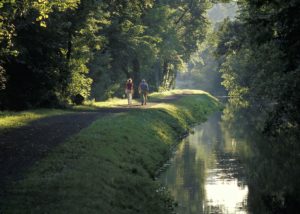For Immediate Release: May 24, 2017
COALITION APPLAUDS INTRODUCTION OF GROWING GREENER BILL
First Step Toward Increased Investment to Protect Water, Land and
Other Natural Resources
(HARRISBURG, PA) The Pennsylvania Growing Greener Coalition today applauded the introduction of legislation that establishes a framework for renewed and increased investment in the state’s Growing Greener program. The legislation was introduced by Sen. Tom Killion (R-Delaware), Sen. Richard Alloway (R-Adams) and Sen. Chuck McIlhinney (R-Bucks).
“We are thankful to Senators Killion, Alloway and McIlhinney for standing up for the Growing Greener program and recognizing the importance of protecting our water and other natural resources,” said Andrew Heath, executive director of the Pennsylvania Growing Greener Coalition. “This legislation is a good first step as we work with the Governor and the General Assembly to identify a bipartisan, sustainable revenue source for increased investment in the Growing Greener program.”
Established in 1999, the Growing Greener program has a long history of success, but there is still much more work to be done. The Coalition, the largest coalition of conservation, recreation and preservation organizations in the state, has identified more than $315 million in annual needs to ensure Pennsylvanians continue to have access to clean water, locally grown food, and parks, trails and other recreational opportunities.
However, funding for the program is at an all-time low, down 75 percent since the mid-2000s.
“It will take greater investments in the right people, places and practices for Pennsylvania to get back on track toward meeting its clean water commitments. Renewed and increased funding of conservation efforts like the Growing Greener III program is a step in the right direction,” said Harry Campbell, Pennsylvania executive director of the Chesapeake Bay Foundation. “Pennsylvania has roughly 19,000 miles of impaired waters. We look forward to working with legislators as they pursue additional revenue streams that will clean up and save our rivers and streams.”
Senate Bill 705 updates the current Growing Greener program, adding the Department of Community and Economic Development, the Pennsylvania Fish and Boat Commission, the Pennsylvania Game Commission and the Pennsylvania Historical and Museum Commission to the agencies eligible to receive Growing Greener money.
The bill also authorizes the funding of a Working Forest Conservation Easement initiative to protect the state’s forests and ensure a healthy forest industry and reflects the urgent need to address water quality issues in the Susquehanna River watershed by requiring certain state agencies to allocate a percentage of Growing Greener funds for projects in the Susquehanna River watershed. It also enables the Department of Agriculture to use Growing Greener dollars to support best management practices on farms and help improve local water quality.
“As budget negotiations continue, the Coalition looks forward to working with our elected leaders in Harrisburg to ensure funding to keep our water clean, conserve our land, and provide parks, trails and other recreational opportunities for residents and visitors alike,” said Heath. “We must act now to Keep Pennsylvania Growing Greener.”
The bill has strong bipartisan support with the following 27 cosponsors:
Sens. Richard Alloway (R-Adams), David Argall (R-Schuylkill), Lisa Baker (R-Susquehanna), Camera Bartolotta (R-Washington), John Blake (D-Lackawanna), Lisa Boscola (D-Lehigh), James Brewster (D-Allegheny), Jay Costa (D-Allegheny), Andrew Dinniman (D-Chester), Wayne Fontana (D-Allgeheny), John Gorder (R-Northumberland), Stewart Greenleaf (R-Bucks), Art Haywood (D-Philadelphia), Tom Killion (R-Delaware), Wayne Langerholc (R-Bedford), Chuck McIlhinney (R-Bucks), Thomas McGarrigle (R-Delaware), Robert Mensch (R-Montgomery), John Rafferty (R-Montgomery), Guy Reschenthaler (R-Allegheny), John Sabatina (D-Philadelphia), Judy Schwank (D-Berks), Patrick Stefano (R-Somerset), Randy Vulakovich (R-Allegheny), Kim Ward (R-Westmoreland), Donald White (R-Armstrong), John Yudichak (D-Luzerne).
